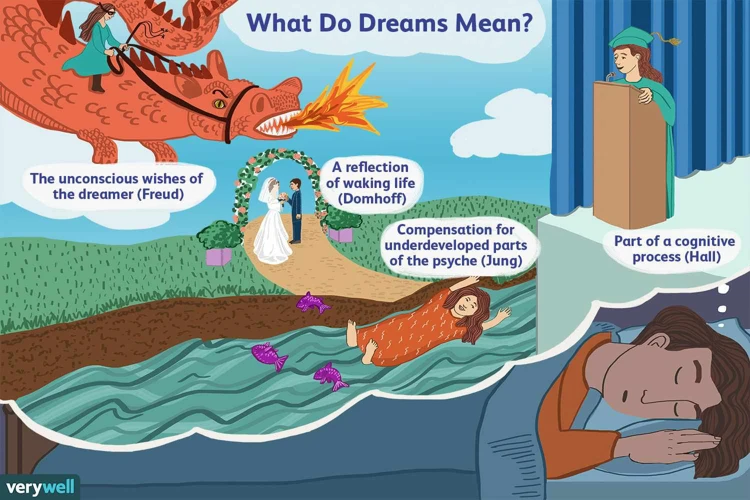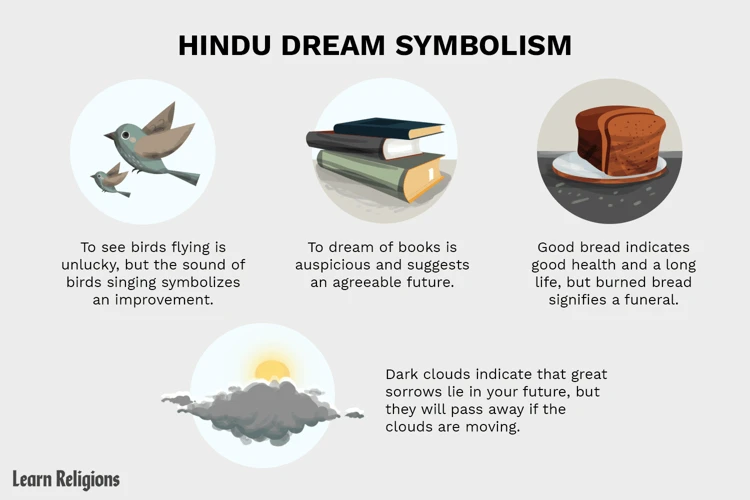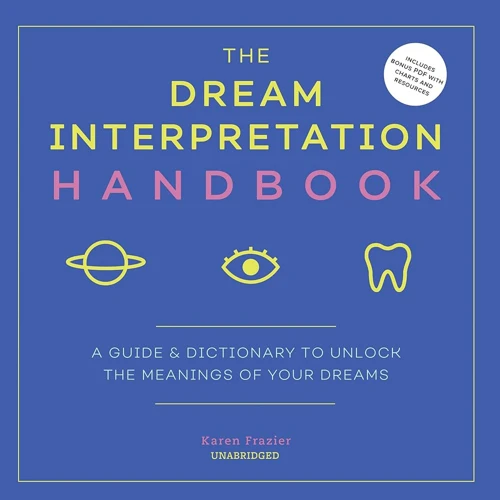Dreams have long fascinated and intrigued us, as they offer a window into the mysterious world of our subconscious mind. They can be informative, entertaining, or downright perplexing, leaving us wondering about their true meaning and significance. Many of us find ourselves pondering over the question, “What is the meaning of my dream?” Fortunately, in this article, we will delve into the world of dream interpretation, exploring common dream themes, symbolism, and techniques for unraveling the hidden messages within our dreams. So, if you’re ready to explore the depths of your mind and unlock the secrets of your dreams, read on to discover how you can find the meaning of your dreams for free.
The Importance of Dream Interpretation

Dream interpretation holds great importance as it allows us to gain insight into our inner thoughts, emotions, and experiences. Our dreams serve as a bridge between our conscious and unconscious mind, providing a plethora of valuable information. By exploring the meaning of our dreams, we can gain a better understanding of ourselves, our desires, fears, and unresolved issues. This self-reflection can lead to personal growth, improved self-awareness, and even problem-solving. Additionally, dream interpretation can help us process emotions, overcome trauma, and find meaning in our daily lives. Whether it’s deciphering the symbolism behind flying dreams or unraveling the hidden messages of falling dreams, diving into dream interpretation offers a unique opportunity for self-discovery and psychological exploration.
Common Dream Themes

Dreams come in a multitude of forms, each brimming with unique symbolism and meaning. Understanding common dream themes can offer valuable insights into our subconscious thoughts and emotions. Flying dreams, for instance, are often associated with a sense of freedom, empowerment, and a desire for transcendence. Falling dreams, on the other hand, can evoke feelings of vulnerability, insecurity, or a fear of failure. Chase dreams, characterized by pursuits or being pursued, may reflect a sense of urgency, anxiety, or unresolved conflicts. Teeth falling out dreams can symbolize concerns about self-image, communication, or a fear of losing control. By unraveling the significance behind these familiar dream themes, we can gain a deeper understanding of our innermost thoughts and emotions, and perhaps even find clues to navigate our waking lives with greater confidence and clarity.
1. Flying Dreams
Flying dreams are a common and exhilarating experience that often leave us questioning their meaning. These dreams can symbolize a sense of freedom, empowerment, or the ability to rise above challenges in our waking life. They might indicate a desire for escape or a need for a new perspective. Flying dreams can also represent a feeling of being on top of the world or having a sense of control. They can be a reflection of our ambitions, goals, and aspirations, encouraging us to pursue our dreams with confidence and determination. If you want to explore more about dreams related to action or fighting, you can check out our article on ‘What is the Meaning of Fighting in a Dream?‘
2. Falling Dreams
Falling dreams are one of the most common and perplexing dream themes. While the sensation of falling in a dream can be unsettling, the meaning behind it can vary. In some cases, falling dreams may symbolize a lack of control or fear of failure in one’s waking life. They could also reflect a loss of stability or insecurity in a particular situation. Alternatively, falling dreams can represent a need to let go of certain aspects of life or surrender to the natural flow of events. It is essential to examine the specific details and emotions associated with the falling dream to uncover its personal significance. By analyzing the context and exploring personal feelings, individuals can gain valuable insights into their subconscious fears, anxieties, or unresolved issues. Understanding the symbolism behind falling dreams can help individuals confront their fears and make positive changes in their waking life.
3. Chase Dreams
Chase dreams are a common and often intense type of dream that can leave us feeling anxious and on edge. In these dreams, we find ourselves being pursued by someone or something, evoking a sense of fear and urgency. While the meaning of chase dreams can vary depending on the specific details and context, they often reflect feelings of vulnerability, pressure, or a sense of being overwhelmed in waking life. It’s important to pay attention to who or what is chasing us in the dream, as this can provide valuable insights into the areas of our lives where we may be experiencing conflict or feeling pursued. It’s also worth noting that sometimes chase dreams can symbolize a need to confront and address unresolved issues or confrontations. By exploring the underlying emotions and circumstances surrounding these dreams, we can gain a deeper understanding of ourselves and work towards finding resolution and inner peace. If you’re interested in learning more about dreams where someone is trying to kill you, check out this article for further insight.
4. Teeth Falling Out Dreams
Teeth falling out dreams can be both perplexing and unsettling. This common dream theme is often associated with feelings of vulnerability, powerlessness, or a loss of control in waking life. While these dreams can have various interpretations depending on the individual and their personal experiences, they often symbolize concerns about appearance, communication, or self-image. Some believe that these dreams may reflect underlying anxieties about aging, fear of judgment, or a lack of confidence. Exploring the meaning behind teeth falling out dreams can provide valuable insights into our self-perception and the areas of our lives where we may need to regain control or address unresolved issues. If you want to further understand dreams where you can’t punch hard, check out our in-depth article on /dream-where-you-can-t-punch-hard-meaning/.
Symbolism in Dreams

Symbolism in dreams plays a crucial role in understanding the hidden messages and meaning behind our subconscious experiences. Dreams often use symbols to convey emotions, desires, and experiences that may be difficult to express in our waking lives. These symbols can take on a variety of forms, such as animals, water, death, or money. Animals, for example, may represent certain traits or characteristics that we associate with them. Water can symbolize our emotions and the ebb and flow of life. Death in dreams is often symbolic of transformation or the need for change. Money may symbolize our sense of self-worth or our desire for financial security. Understanding the symbolism in our dreams enables us to grasp the deeper significance of our experiences and gain insight into our inner thoughts and emotions. By decoding these symbols, we can unlock the valuable messages that our dreams are trying to convey.
Interpreting Dream Symbols

Interpreting dream symbols is a fascinating and intricate process that requires careful observation and analysis. Dreams often contain a multitude of symbols that hold unique meanings specific to each individual. To effectively interpret dream symbols, it is essential to consider the context, personal associations, and emotions attached to each symbol. For example, animals in dreams can represent different qualities or instincts depending on the specific animal and the dreamer’s relationship to it. Water in dreams can symbolize emotions, the subconscious mind, or the flow of life. Death in dreams can represent transformation or the end of a phase in one’s life. Money in dreams can have various interpretations, ranging from financial concerns to personal value and worth. By paying attention to these symbols and their connections to our own lives, we can begin to unravel the hidden messages within our dreams and gain deeper insight into ourselves.
1. Animals
Animals are a common symbol in dreams and can carry significant meaning. Each animal represents different characteristics and qualities that can provide insight into our subconscious thoughts and emotions. For example, a dream about a lion may symbolize strength, leadership, or assertiveness, while a dream about a spider could represent creativity, patience, or feeling trapped. It’s important to consider the context and your personal associations with the animal in order to fully interpret its meaning. Keeping a dream journal can help you identify patterns and recurring animal symbols in your dreams, allowing you to delve deeper into their significance. So, pay attention to the animals in your dreams, as they could be offering invaluable messages or insights into your waking life.
2. Water
Water is a commonly recurring symbol in dreams, and its interpretation can reveal important aspects of our emotional state and unconscious desires. In dreams, water can represent a wide range of emotions, from calmness and tranquility to turbulence and uncertainty. The state of the water, such as calm waters or rough seas, can reflect the current emotional state of the dreamer. Additionally, the depth, clarity, and color of the water can convey different meanings. For example, clear and pristine water may symbolize purity and clarity of thought, while murky or muddy water may indicate confusion or hidden emotions. Paying attention to the presence of water in your dreams can provide valuable insights into your emotional well-being and help you navigate your waking life with greater awareness and understanding.
3. Death
The symbolism of death in dreams is a common and complex theme. Dreams about death often do not predict literal physical death, but rather represent symbolic endings or significant transitions in our waking life. The interpretation of these dreams can vary depending on the specific details and emotions associated with the dream. Death in dreams can symbolize the end of a phase or relationship, the need for personal transformation and growth, or the fear of change and loss. It can also serve as a reminder to appreciate the present moment and make the most out of life. Instead of fearing death dreams, it is essential to explore the underlying emotions and meanings to gain valuable insights into our subconscious mind and navigate life’s transitions with greater understanding and resilience.
4. Money
In dream symbolism, money often represents abundance, prosperity, and the value we place on our resources. Dreaming about money can have various meanings depending on the context and emotions involved. On one hand, it can symbolize financial success, opportunities, and wealth. It may indicate that you are feeling secure and fulfilled in your waking life. On the other hand, money dreams can also reflect issues related to financial stress, scarcity, and insecurities. They may signal a need to reassess your relationship with money or make changes in your financial habits. Remember, the interpretation of money dreams is highly subjective and can vary based on personal experiences and beliefs. It is essential to reflect on the emotions and details surrounding the dream to gain deeper insights into its meaning.
Keeping a Dream Journal

Keeping a dream journal is a vital practice for anyone interested in understanding the meaning of their dreams. By recording your dreams in a journal, you create a written account of the dream details, emotions, and symbols that can easily slip from memory upon waking. The act of writing down your dreams helps to solidify them in your conscious mind and provides a reference point for future analysis. Additionally, a dream journal allows you to identify patterns or recurring themes in your dreams over time, giving you valuable insights into your subconscious mind. To keep a dream journal effectively, it’s important to write in it as soon as you wake up, before the details fade away. Use descriptive language to capture the vividness of the dream, and don’t forget to include any significant emotions or symbols that stood out to you. Over time, you can review your dream journal and look for connections, symbols, or themes that can aid in the interpretation of your dreams.
Unraveling Lucid Dreams

Unraveling lucid dreams is an exciting and fascinating aspect of dream interpretation. In these dreams, the dreamer becomes aware that they are dreaming and can actively participate and manipulate the dream. This level of consciousness allows for incredible experiences and the ability to control the dream’s narrative and environment. Lucid dreaming offers a unique opportunity for self-exploration, creativity, and problem-solving. It allows us to experiment with different scenarios, face fears, and even practice skills in a safe and controlled dream world. To unravel lucid dreams, one can keep a dream journal to increase dream recall and identify recurring dream signs or perform reality checks throughout the day to improve self-awareness. Techniques such as visualization, reality testing, and meditation can also aid in inducing and prolonging lucid dreams. So, dive into the realm of lucidity and unlock the boundless possibilities of your dreams.
Connecting Dreams to Everyday Life
Connecting dreams to everyday life is an essential aspect of understanding their significance. While dreams may seem disconnected from reality, they often contain symbols and themes that reflect our waking experiences and emotions. By analyzing the elements of our dreams and considering how they relate to our daily lives, we can gain valuable insights and make connections that help us navigate our waking world. For example, a dream about being chased may symbolize a feeling of being pursued or overwhelmed in our daily lives. By examining the underlying emotions and circumstances, we can identify areas of stress or conflict and take steps to address them. Similarly, dreams can offer creative solutions to problems or reveal hidden desires that we may not be consciously aware of. Through the process of connecting our dreams to everyday life, we can harness the wisdom of our subconscious mind and use it to enhance our well-being and personal growth.
Conclusion
In conclusion, dream interpretation is a valuable tool for self-discovery, personal growth, and understanding the complexities of our subconscious mind. By exploring common dream themes, deciphering symbolism, and keeping a dream journal, we can unlock the hidden messages and meanings within our dreams. Dream interpretation allows us to connect our dreams to our everyday lives, gaining insight into our emotions, desires, and fears. So, the next time you find yourself wondering about the meaning of your dream, remember that you have the power to unravel its significance and uncover a deeper understanding of yourself. Embrace the fascinating world of dream interpretation and embark on a journey of self-discovery like no other. Your dreams are waiting to be understood, so start exploring today.
Frequently Asked Questions
1. Can dreams predict the future?
While dreams may contain symbols or themes that seem to predict future events, it is important to approach these interpretations with skepticism. Dreams are not a reliable tool for predicting the future, but they can offer insight into our emotions, fears, and desires.
2. Can recurring dreams have a specific meaning?
Recurring dreams often indicate unresolved issues or emotions that continue to surface in our subconscious. By paying attention to the patterns and themes in these dreams, we can uncover deeper meanings and work towards resolving these underlying issues.
3. Is it possible to control or influence our dreams?
Yes, it is possible to control or influence our dreams through techniques such as reality testing, reality checks, and lucid dreaming. These practices allow us to become aware that we are dreaming, giving us some control over the dream narrative.
4. What does it mean when I have nightmares?
Nightmares often reflect our fears, anxieties, or unresolved traumas. They offer an opportunity to confront and process these emotions in a safe and controlled environment. Understanding the underlying meaning of nightmares can help us address these issues and alleviate their impact on our daily lives.
5. Can dreams reveal repressed memories?
Dreams have the potential to unveil repressed memories or bring suppressed emotions to the surface. While dream analysis can provide insights into our subconscious mind, it is important to approach any potential memories with caution and seek professional guidance if needed.
6. Why do some dreams feel incredibly vivid?
Vivid dreams can occur due to a variety of factors, including emotional intensity, stress, or specific sleep stages. These dreams may feel more lifelike due to heightened brain activity during REM sleep, where most vivid dreaming occurs.
7. Are there universal symbols in dreams?
While certain symbols may have collective meanings across cultures or societies, dream symbols are often highly personal and influenced by individual experiences, beliefs, and interpretations. Understanding the context and personal associations of symbols is crucial in dream analysis.
8. How can dream interpretation enhance creativity?
Dreams can be a rich source of inspiration for creative endeavors. Analyzing the symbols, themes, and emotions in our dreams can spark new ideas, offer fresh perspectives, and tap into the depths of our imagination.
9. Can dreams offer insight into unresolved relationship issues?
Yes, dreams often reflect our relationships and dynamics with others. Analyzing the interactions and emotions experienced in our dream scenarios can provide clues about unresolved conflicts, unmet needs, or hidden desires within our relationships.
10. Are dreams random or do they have a deeper meaning?
While some dreams may seem random or nonsensical, many hold deeper meanings. Dreams draw on our subconscious thoughts, desires, and emotions, weaving them into complex narratives that can provide valuable insights into our psychological state and personal experiences.


